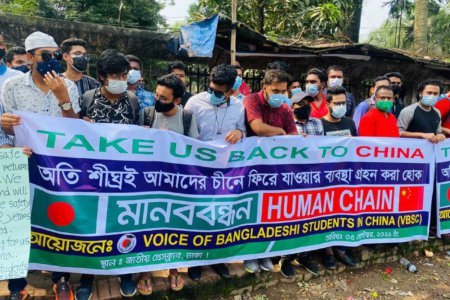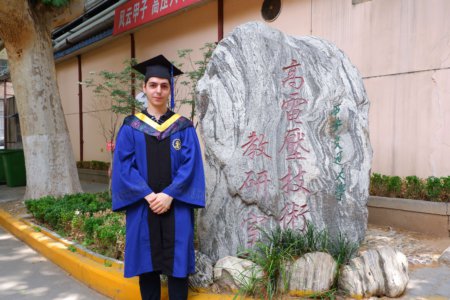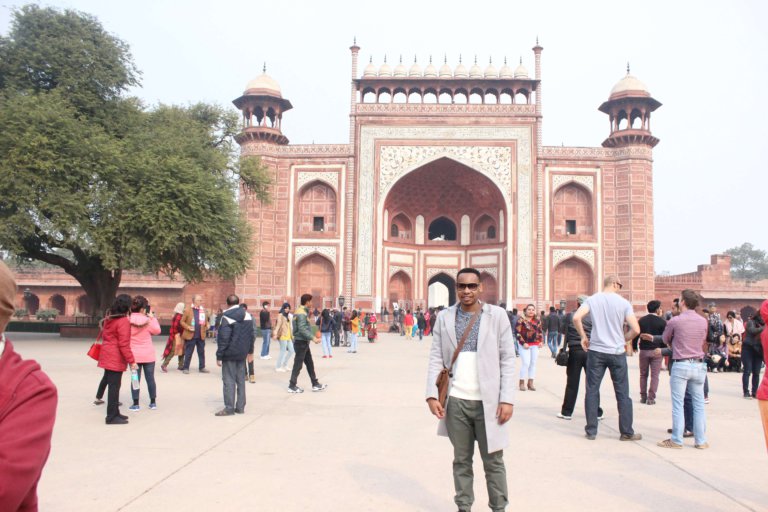
Lwazi Mchunu no longer wanted to become a doctor. After long sleepless nights and sky-high demands, he left medicine for his next venture: YouTube.
Mchunu had earned his MBBS at Southern Medical University in 2019, a hard-won journey that started with a joint scholarship offered by his home country and China. He was shaping up to be the vision of success which stemmed from his parents’ wishes of him earning a “title.”
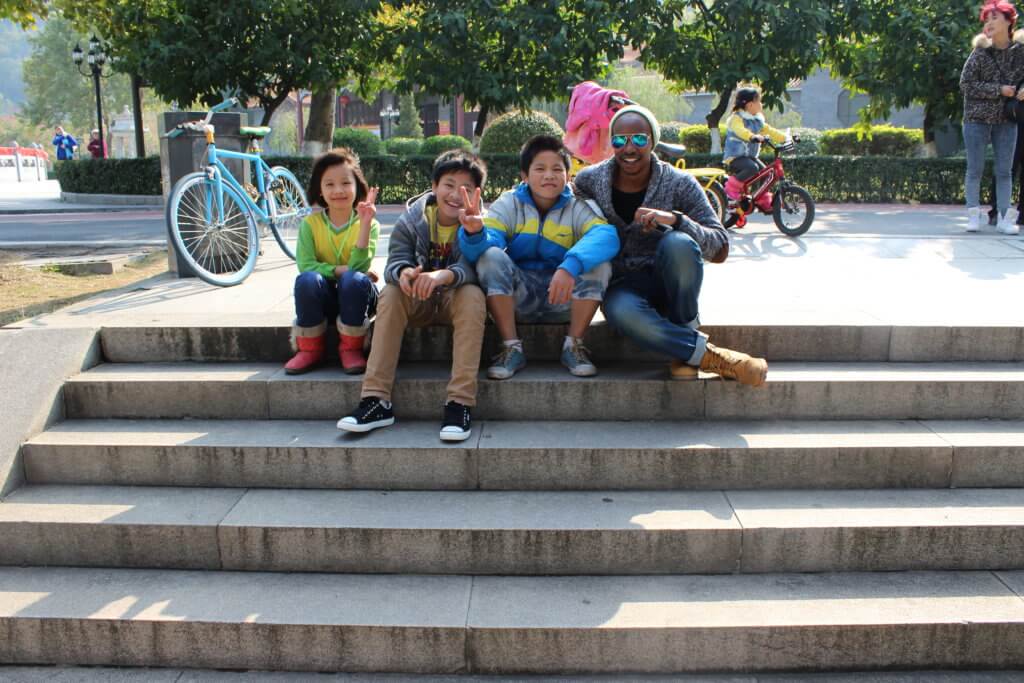
“Ever since I was a child, my parents would tell me that I always wanted to be a doctor. However, back then it was just about having the title because I hadn’t experienced much about this field,” he says. Source: Lwazi Mchunu
Letting go one’s childhood dream and disappointing parents isn’t easy, which is why Mchunu embarked on a soul-searching journey to Southeast Asia after he gave up his white coat. Exploring Cambodia, India, Malaysia, Thailand, Indonesia and more, the South African felt a rush of adrenaline that he hopes to replicate when the pandemic is over.
Today, Mchunu’s mission is to continue vlogging, grow his community on YouTube and learn more about himself. Below we talk to this South African YouTuber about what life in China is like, his vlogging journey, and his advice for students who want to follow suit:
Give us more detail about your interest in medicine.
Ever since I was a child, my parents would tell me that I always wanted to be a doctor. However, back then it was just about having the title because I hadn’t experienced much about this field.
As I got older, my interest in courses such as biology and science grew in high school. I’d always wanted to pursue medicine and when I couldn’t get into med school, I enrolled at the University of Kwa-Zulu Natal in South Africa.
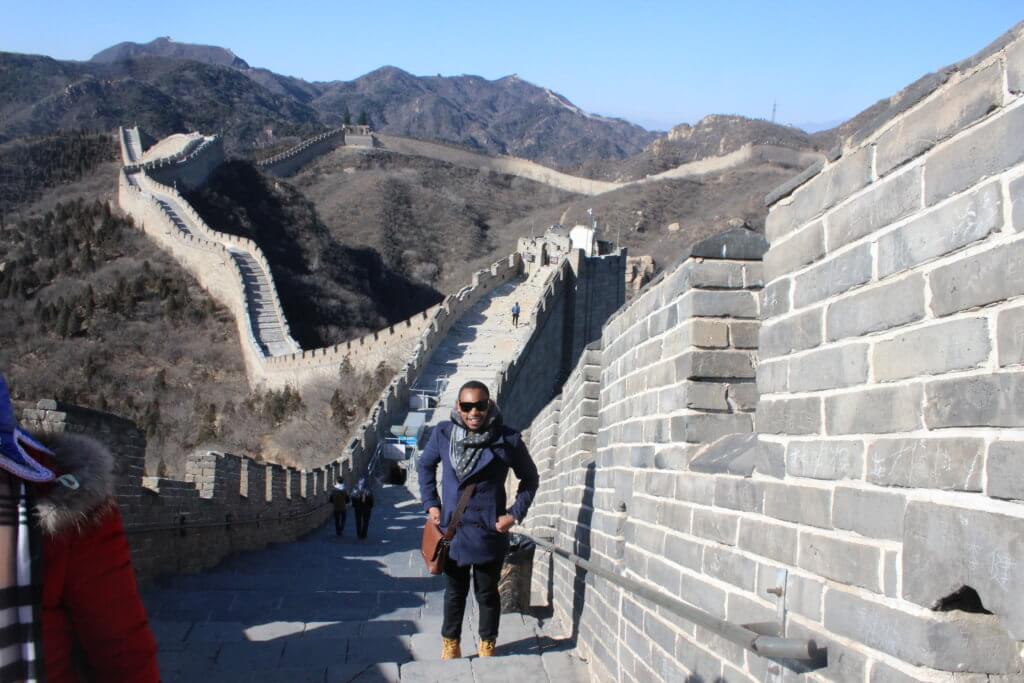
“I enjoyed travelling across the country learning about the culture and people. China is big and has diverse dialects, food and culture. My first stint in travelling was backpacking in China,” he says about what he loves about the country. Source: Lwazi Mchunu
There, I pursued a BSc in Biochemistry and Microbiology. In 2013, during my final year of the programme, I heard of an opportunity offered by the Chinese government that offered full-ride scholarships to African, Asian and South American countries.
Fast forward to two months before the end of my final year there, I dropped out of my BSc and left for China to study medicine.
Why did you choose China?
I didn’t actually choose China. It’s funny because before I knew about the scholarship I never considered that country. It just simply happened so that I grabbed an opportunity that came my way and have since never looked back.
What do you like most about China?
I enjoyed travelling across the country learning about the culture and people. China is big and has diverse dialects, food and culture. My first stint in travelling was backpacking in China.
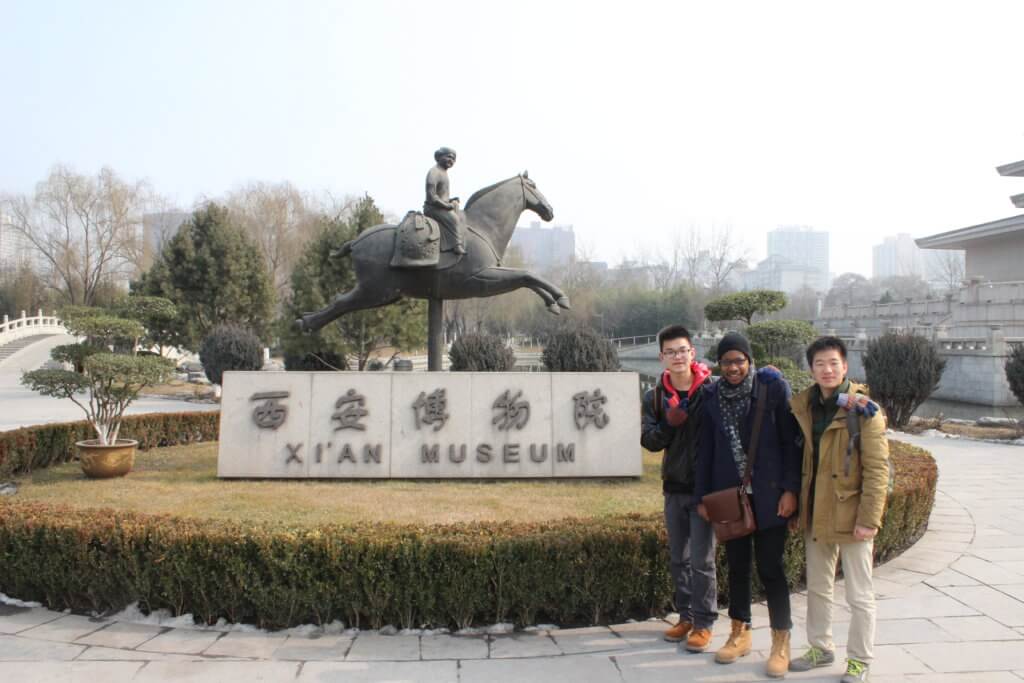
Mchunu left medicine to prioritise his mental health. Source: Lwazi Mchunu
As a South African YouTuber in China, you share a lot of helpful videos to help foreigners. Walk us through your jump from medicine to teaching.
Indeed, I do have a YouTube video about this topic. Medicine is a very demanding field and profession where I spent all of my 20s in school.
I wanted to take a year to prioritise my mental health to travel and experience life outside of medicine. I spent over a decade studying and learning after high school and to be honest, I was burnt out.
Teaching was always something I did part-time as a med student because I love working with kids. It felt like an easy move and my parents (who I love dearly) supported me all the way.
What about your travels around Asia? What were some of your favourite memories experiencing new cultures?
I started travelling outside of China back in 2015. My first backpacking trip was when I went to Cambodia. After that, I visited India, Malaysia, Thailand and Indonesia.
All of the places I’ve been around Asia have been memorable for me. This one time, I missed my train from New Delhi to Agra in Uttar Pradesh which led me to meet two Korean guys and share a “tuk-tuk” (a rickshaw) in peak traffic to try and reach the next station and catch the train there.
The adrenaline rush and excitement from travelling truly makes me feel alive. Another memorable time was when I went to Laos (a small country) because of the group of friends I made there. They made my time so special and unique.
I made friends from all over the world throughout my travels and I still keep in touch with them today.
Besides being a South African YouTuber in China and teaching English, what else do you have planned?
For now, I’m just learning more about myself, teaching, vlogging and growing a community as a South African YouTuber where I get to share my memorable life experiences. I also plan on resuming my international travels once COVID-19 restrictions ease up.
What about language barriers in China? Is it hard for a foreigner to strike up a conversation with the locals and order food?
I would definitely say yes. If you can’t speak the language or live in a small city where the locals don’t necessarily come across a lot of foreigners. Luckily, I don’t have to deal with that because I can speak, write and understand Mandarin.
What about the local food compared to home? Tell us your most and least favourite.
Chinese food in China is very different to the Chinese food that I’ve eaten in South Africa. I was shocked when I ate things I used to enjoy back home because they didn’t taste the same.
I love mostly vegetarian dishes here in China. Things like egg and tomato, green beans, eggplant and vegetable fried dumplings. In South Africa, where I’m from, most of the meals I grew up eating were curries and stews (this is due to the large Indian community influence in Durban).
Tell us more about your hometown. Where would you take us and what would you show us?
I come from a small township north of Durban, a coastal city in South Africa. It’s a predominantly Zulu-speaking community which is what I speak at home as well.
Kwa Mashu, unfortunately, has a high rate of unemployment, impoverished youth, and lots of crime. However, I would take you to safe spots like a “shisa nyama” (a Zulu word that directly translates to “burnt meat”) which in Western norms just means a good old barbeque.
I’d also walk around the town centre with you and show you street vendors who sell grilled corn on the cob, chicken liver skewers and how the kids there who play with simple things but are incredibly happy and joyful.
I love my hometown as it’s shown me that where you come from doesn’t have to hold you back or define the trajectory of your path in life.
What’s one thing from China you plan to bring back to your friends and family back home?
I already have started but it’s changing people’s perceptions and debunking the typical stereotypes of China and Asian people in general. I’ve taught my family and friends about this country, its people and the culture.
View this post on Instagram
Do you have any advice for international students who want to study in China?
Have an open mind and be prepared to experience a culture and life that’s different from what you know or grew up thinking about China. You will make it and thrive, there’s a place for you here!
Lastly, do you have any additional tips for international students in China?
As a student, I was fortunate enough to be on a dual scholarship by the Chinese government and the South African government. I didn’t have to worry about my finances and I was able to save most of my allowance to fund my travels during medical school.
However, I would advise you to eat locally as local food tends to be more affordable than your typical Western dishes. Take public transport wherever you go (like the subway, buses, or even rent a bike).
China has one of the best and most efficient public transport systems in the world — easy, affordable and reliable. US$100 is about 600 yuan which is enough to get you three local meals a day for about two weeks.
The typical meals consist of rice with vegetables or noodles in broth (one would be about 12 to 17 yuan). Meat-based dished will be a bit more expensive if you eat a lot of meat.








